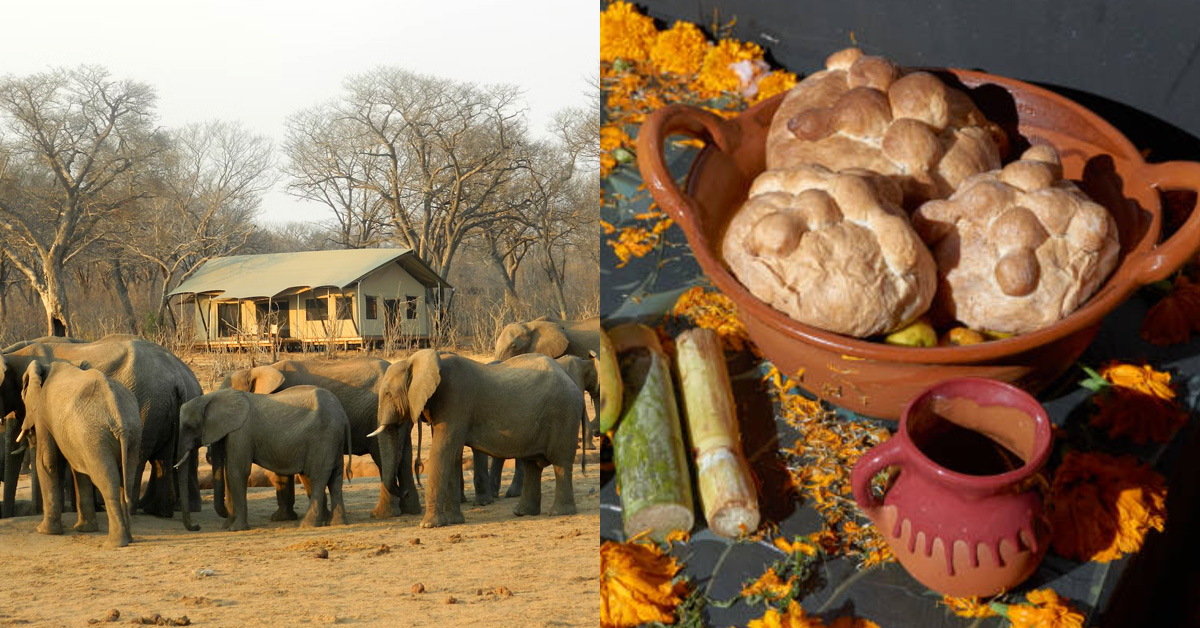Zimbabwean cuisine is a reflection of the country’s diverse cultural heritage, with influences from the Shona, Ndebele, and other ethnic groups. The cuisine is characterized by the use of locally sourced ingredients such as maize, sorghum, beans, and vegetables, as well as meat and poultry.
Zimbabwean food is known for its bold flavors, hearty portions, and unique cooking techniques. From traditional dishes like sadza and muriwo to modern fusion cuisine, Zimbabwean food offers a rich and flavorful culinary experience that is sure to delight any food lover.
Zimbabwean cuisine halal or not?
Is Zimbabwean food halal?
Zimbabwean cuisine is diverse and includes both halal and non-halal options. It is important to check the ingredients and preparation methods of each dish to determine if it is halal or not.
Some common halal dishes in Zimbabwe include sadza (a cornmeal porridge), muriwo unedovi (vegetables with peanut butter), and nyama (meat) dishes made with halal-certified meat.
What kind of food do Zimbabwean eat?
Zimbabwean cuisine is diverse and influenced by the country’s history and geography. Some popular dishes include:
- Sadza: A staple food made from maize meal and served with a variety of stews, vegetables, and meats.
- Nyama: Meat dishes such as beef, chicken, and goat are popular, often grilled or stewed.
- Muriwo Unedovi: A vegetable dish made with collard greens and peanut butter.
- Kapenta: A small fish that is dried and fried, often served with sadza.
- Matemba: Dried fish that is often used in stews and soups.
- Chakalaka: A spicy vegetable relish made with onions, tomatoes, and chili peppers.
- Boerewors: A type of sausage that is popular in Zimbabwean cuisine.
- Mopane worms: A traditional delicacy made from the caterpillar of the mopane moth, often dried and fried.
- Maheu: A traditional drink made from fermented maize meal.
- Zimbabwean tea: A popular beverage made with tea leaves, milk, and sugar.
How can you tell if the food is halal in Zimbabwe?
In Zimbabwe, halal food is usually certified by the Zimbabwe Halaal Council. The councisl is a recognized body that certifies food products as halal based on Islamic dietary laws.
The certification mark of council is usually displayed on the packaging of halal food products.
Additionally, some restaurants and food outlets may display a halal certificate issued by the Zimbabwe Halaal Council or other recognized halal certification bodies.
It is recommended to ask the staff or management of the restaurant or food outlet about the halal status of the food before consuming it.
Is it hard to find halal food in Zimbabwe?
Zimbabwe has a small Muslim population, and therefore, it may be challenging to find halal food in some areas. However, there are a few halal restaurants and grocery stores in major cities like Harare and Bulawayo that cater to the Muslim community.
It is advisable to do some research beforehand or ask locals for recommendations to find halal food in Zimbabwe.
Is Zimbabwean food healthy?
Zimbabwean cuisine is generally considered healthy as it is based on fresh and natural ingredients such as vegetables, fruits, grains, and lean meats. Traditional dishes such as sadza (a maize-based porridge), vegetables, and meat stews are often low in fat and high in fiber.
However, some dishes may be high in salt and carbohydrates, so it is important to consume them in moderation.
What is Zimbabwean food similar to?
Zimbabwean food is similar to other African cuisines, particularly those of neighboring countries such as South Africa, Zambia, and Mozambique. It also shares similarities with East African cuisine, such as Ugandan and Kenyan food.
Zimbabwean cuisine is characterized by the use of maize, sorghum, and millet, as well as a variety of vegetables, meats, and spices.
Some popular dishes include sadza (a type of porridge made from maize), nyama (meat stew), and muriwo unedovi (vegetables cooked with peanut butter).
Steps to find halal food in Zimbabwe
Here are some tips to find halal food in Zimbabwe:
- Research halal food options in Zimbabwe: Start by researching halal food options in Zimbabwe. You can use search engines like Google or social media platforms like Facebook and Instagram to find halal restaurants, cafes, and food stores in Zimbabwe.
- Check for halal certification: Once you have found a halal food option, check if it has halal certification. Halal certification ensures that the food is prepared according to Islamic dietary laws and is free from any haram (forbidden) ingredients.
- Ask for halal options: If you are unsure about the halal status of a food item, ask the restaurant or store staff if they have any halal options. They may be able to provide you with a list of halal food items or suggest alternatives.
- Look for vegetarian options: If you are unable to find halal food options, look for vegetarian options. Vegetarian food is generally considered halal as long as it does not contain any haram ingredients.
- Avoid haram ingredients: Be aware of haram ingredients such as pork, alcohol, and gelatin. Avoid food items that contain these ingredients.
- Ask for recommendations: If you are new to Zimbabwe or unfamiliar with the local halal food scene, ask for recommendations from locals or other Muslims. They may be able to suggest halal food options that you may not have found on your own.
- Be prepared: If you are traveling to Zimbabwe, be prepared by bringing your own halal food or snacks. This will ensure that you have access to halal food options at all times.

